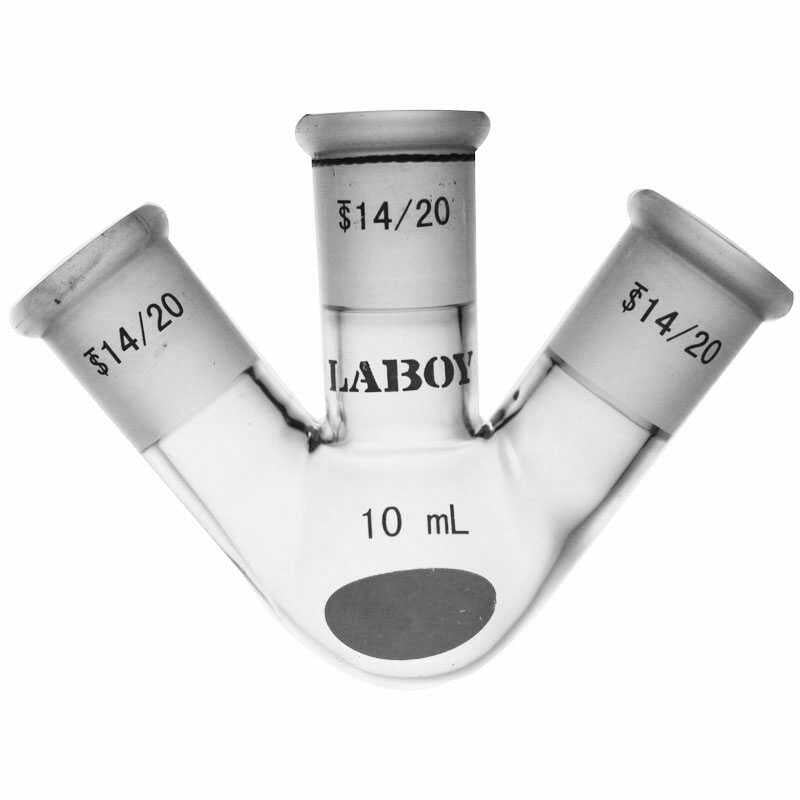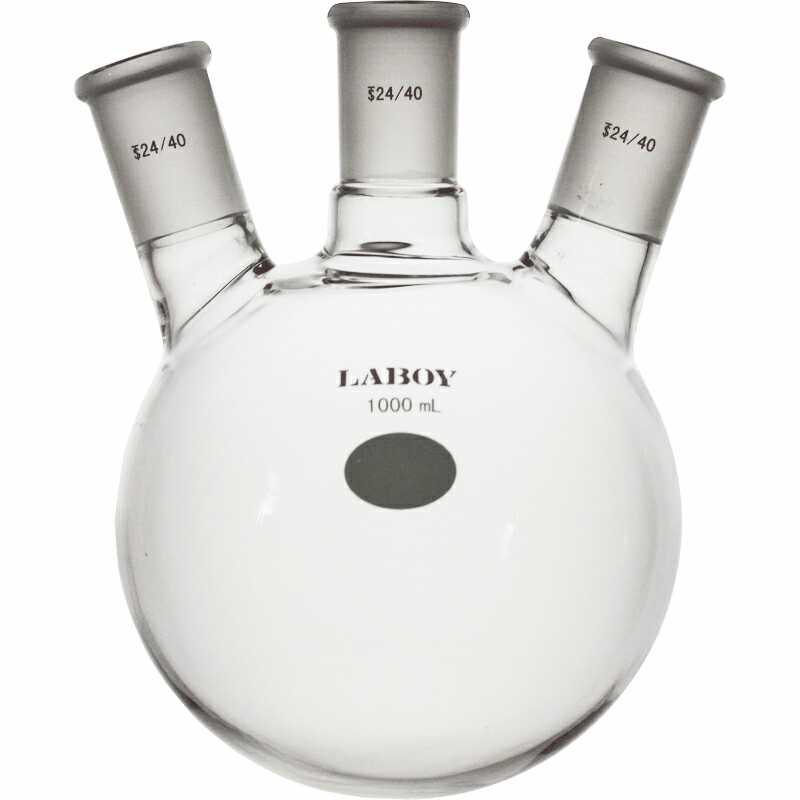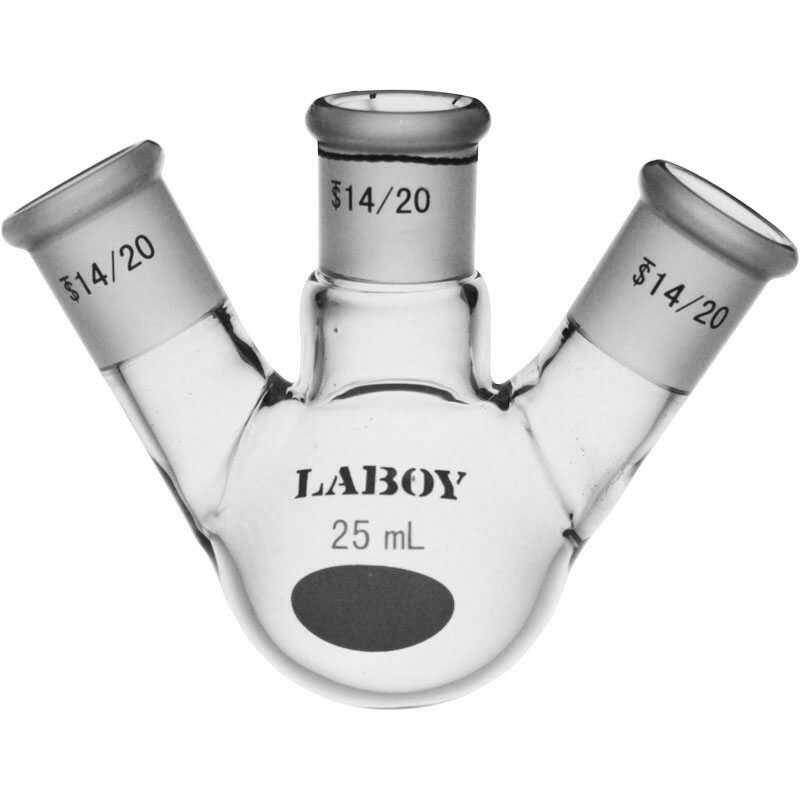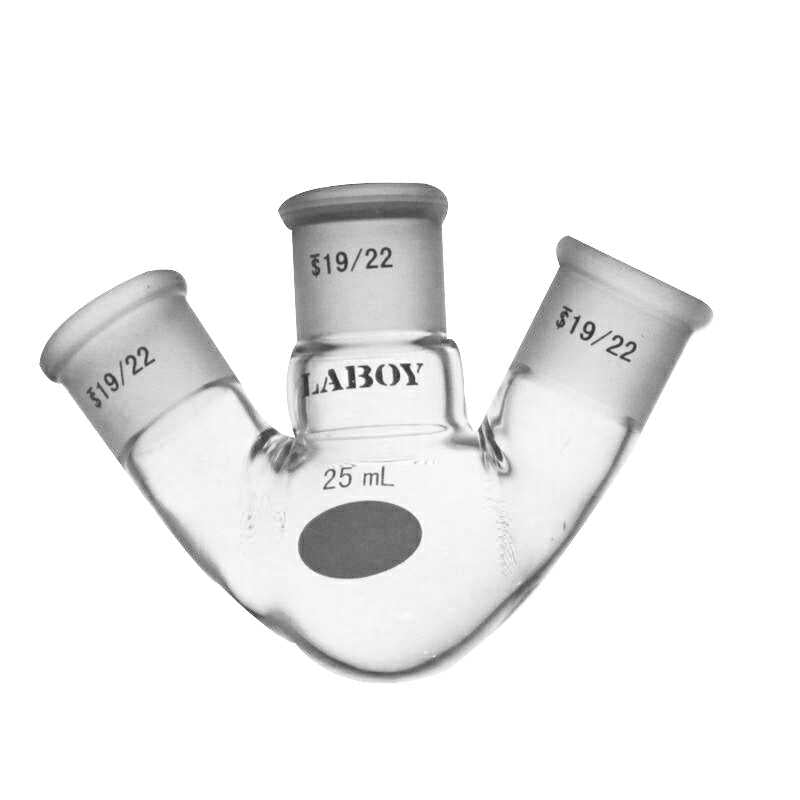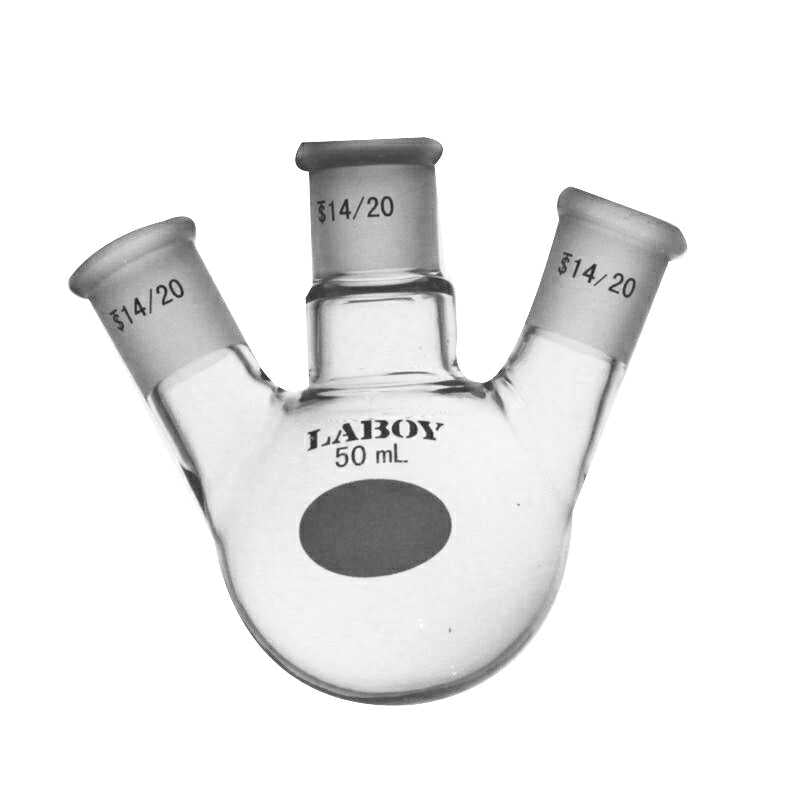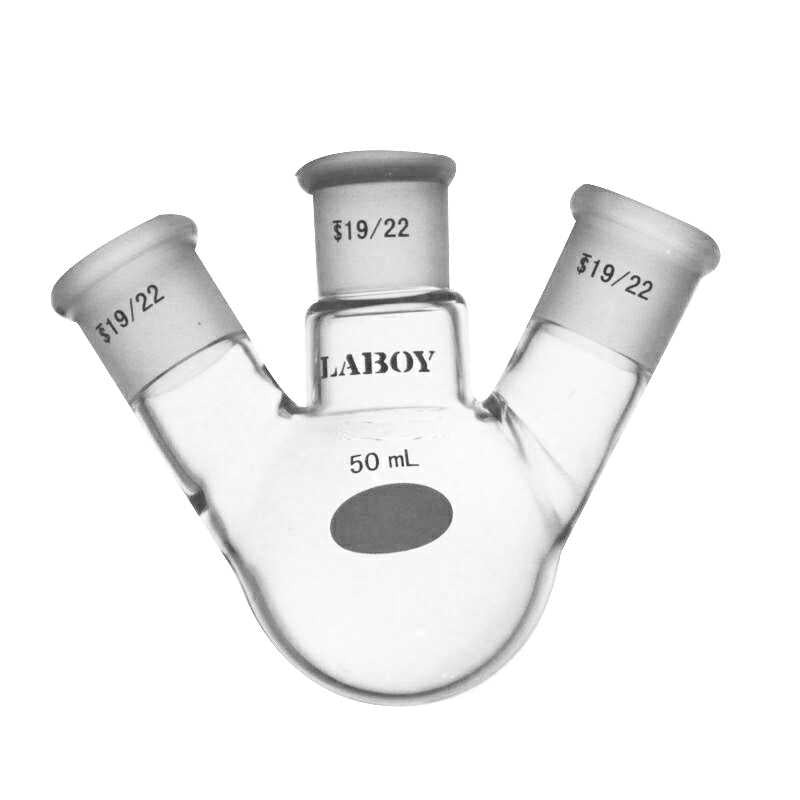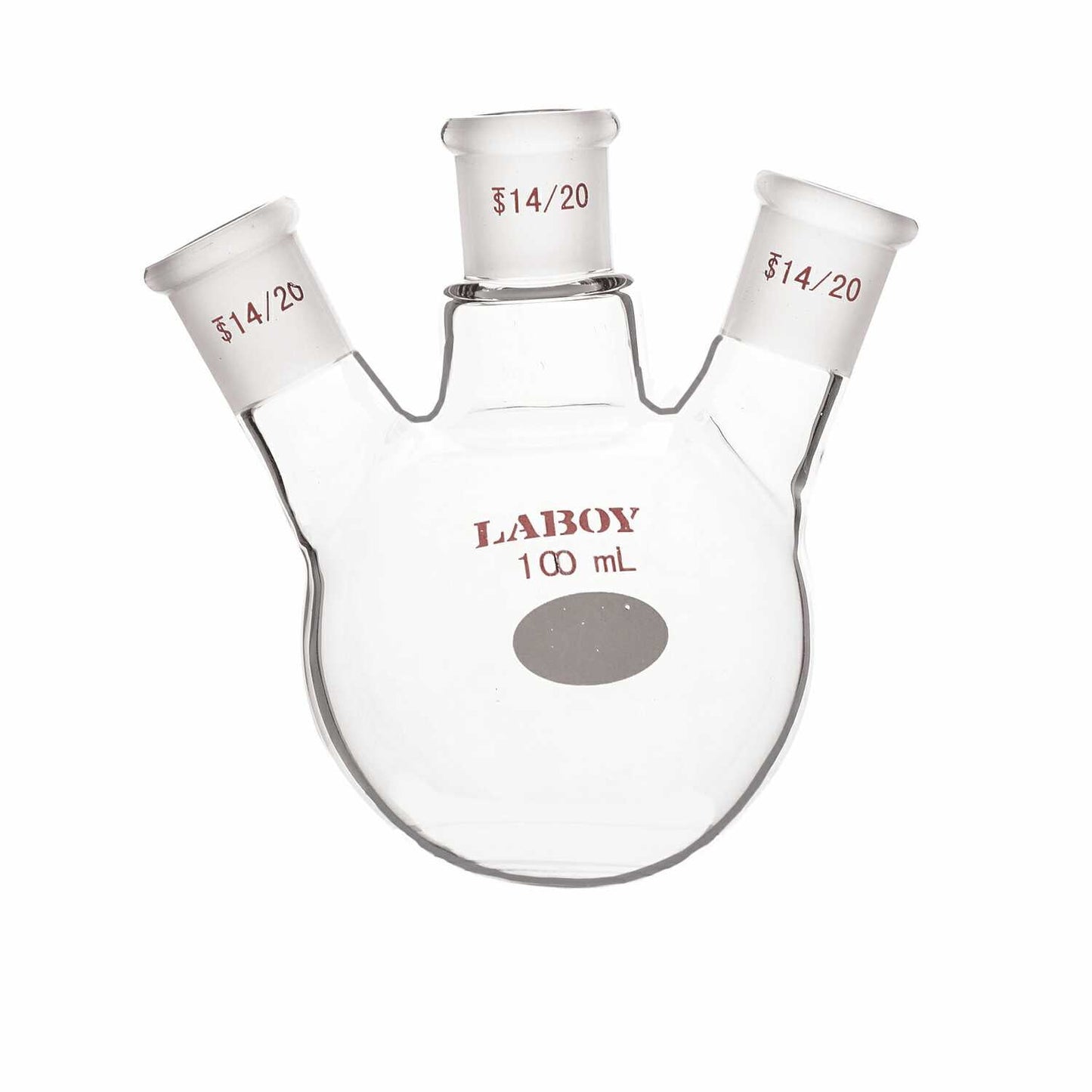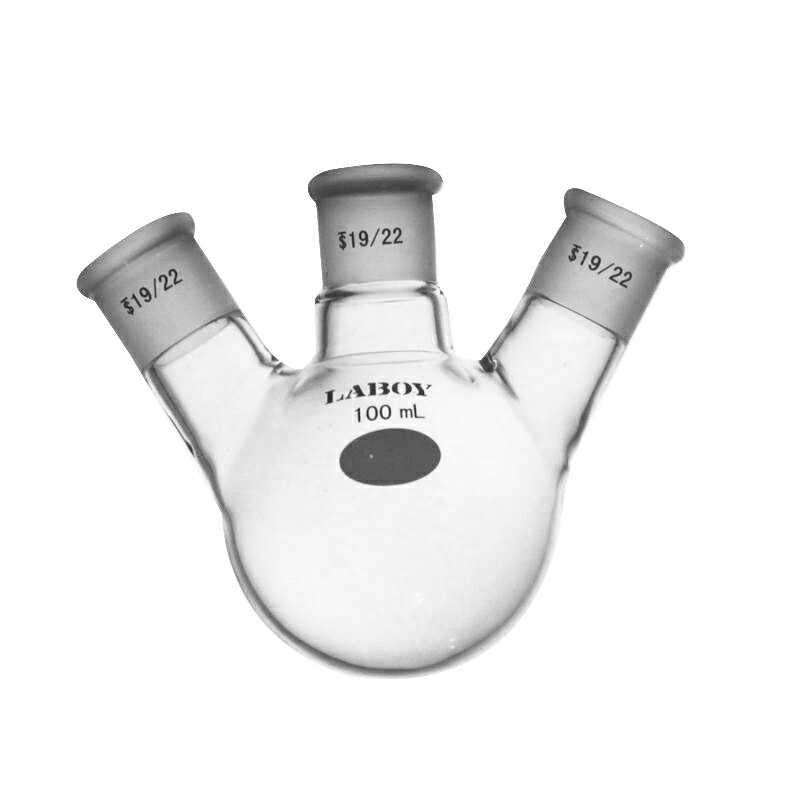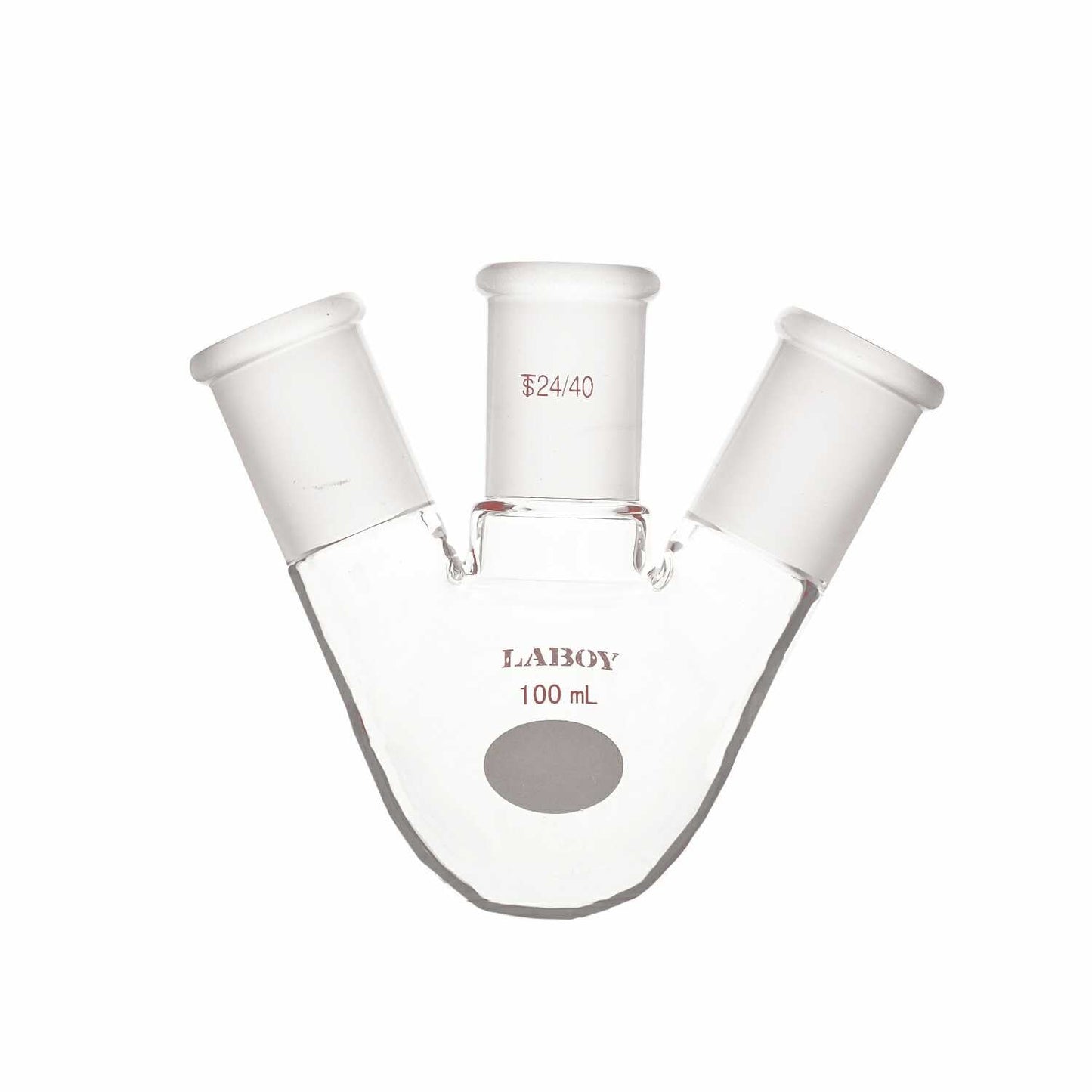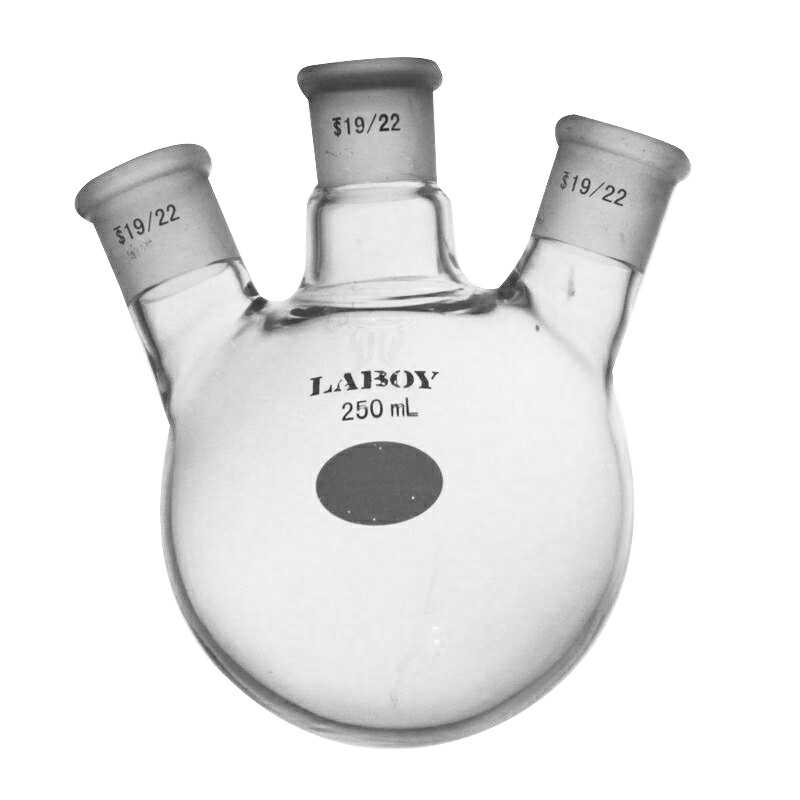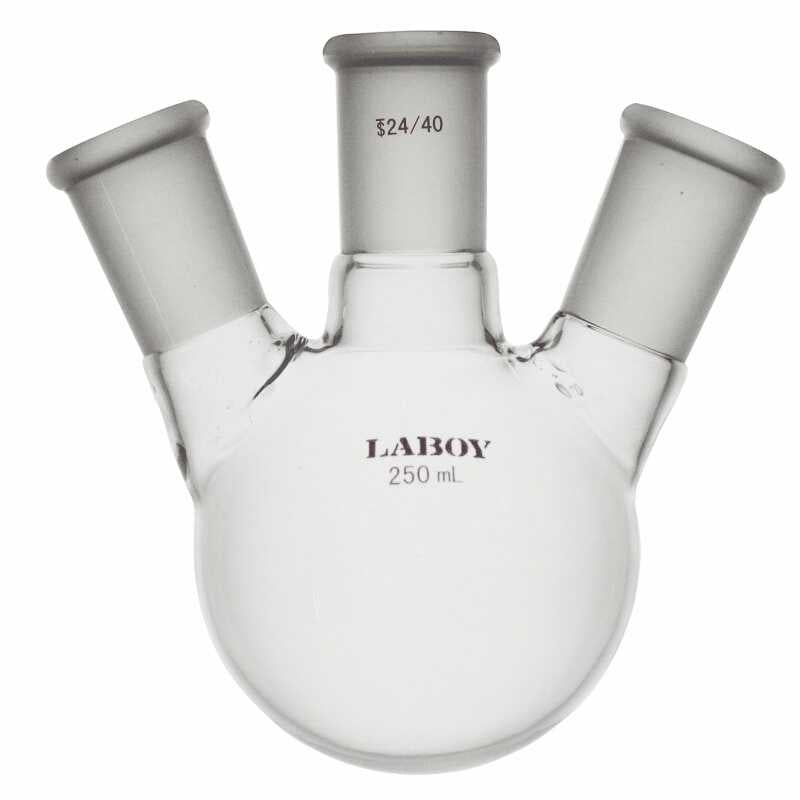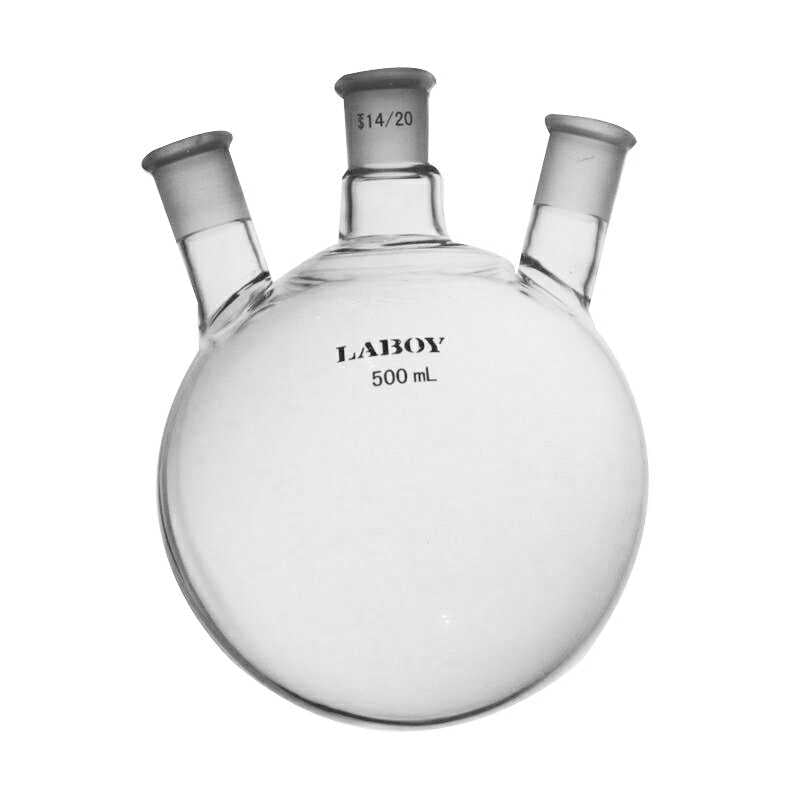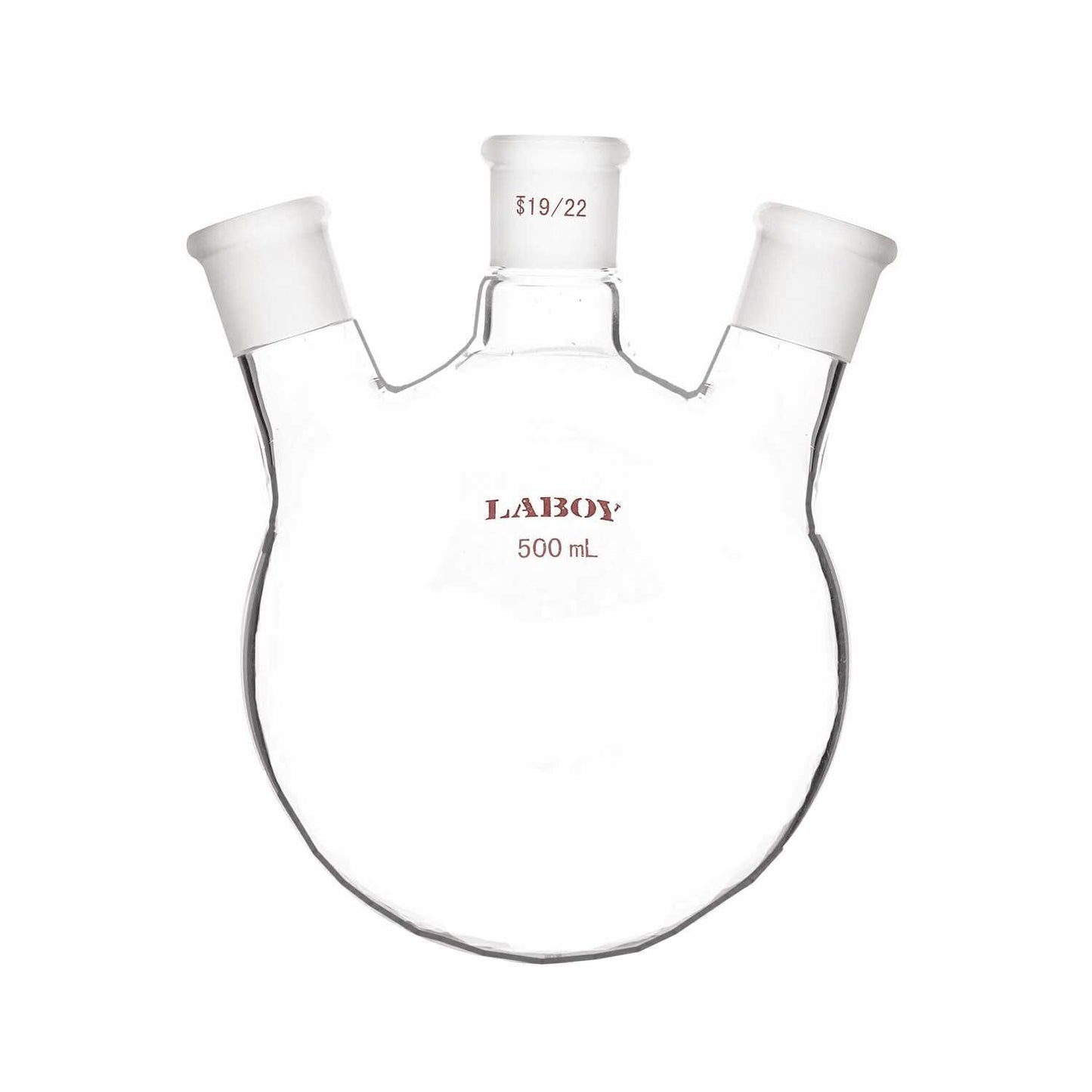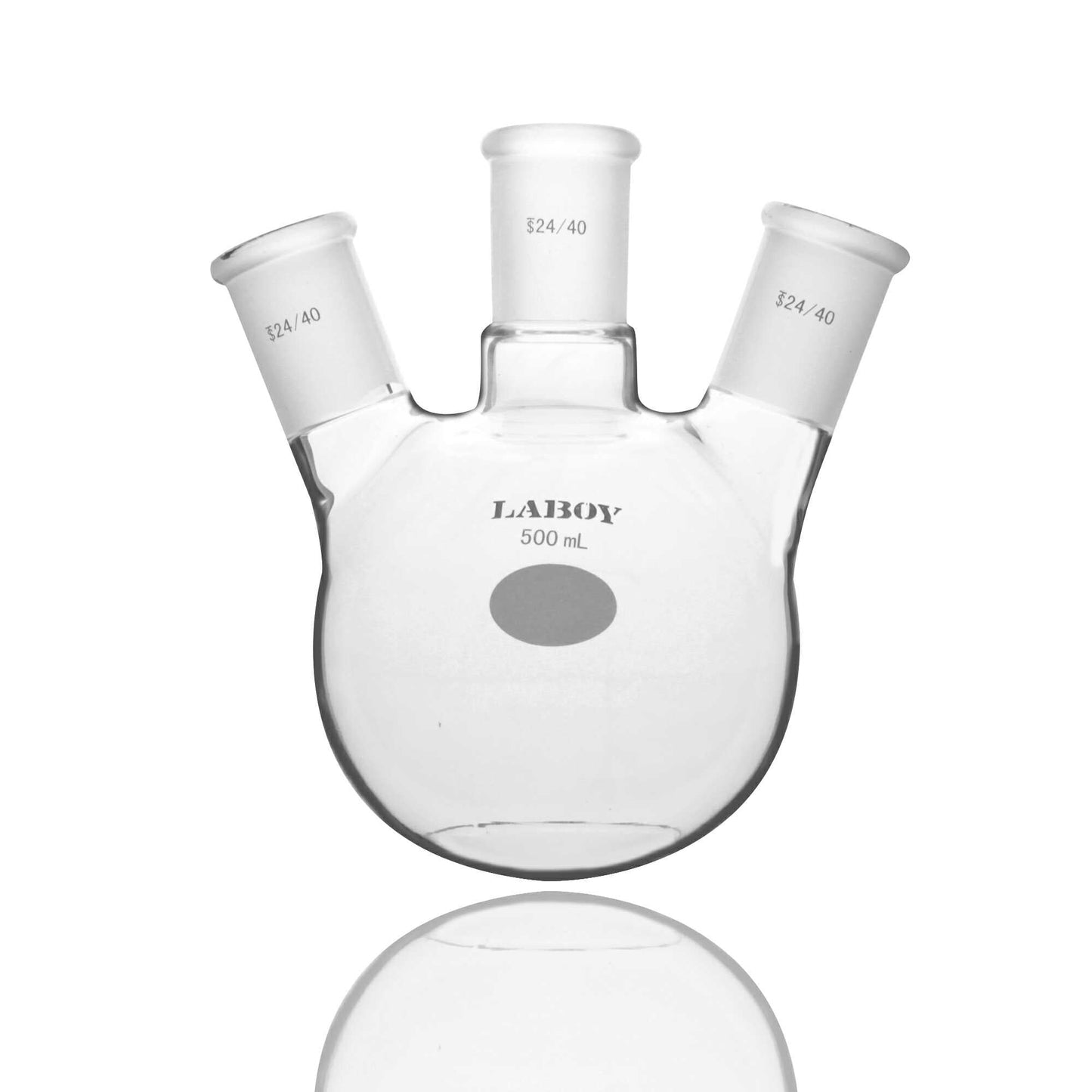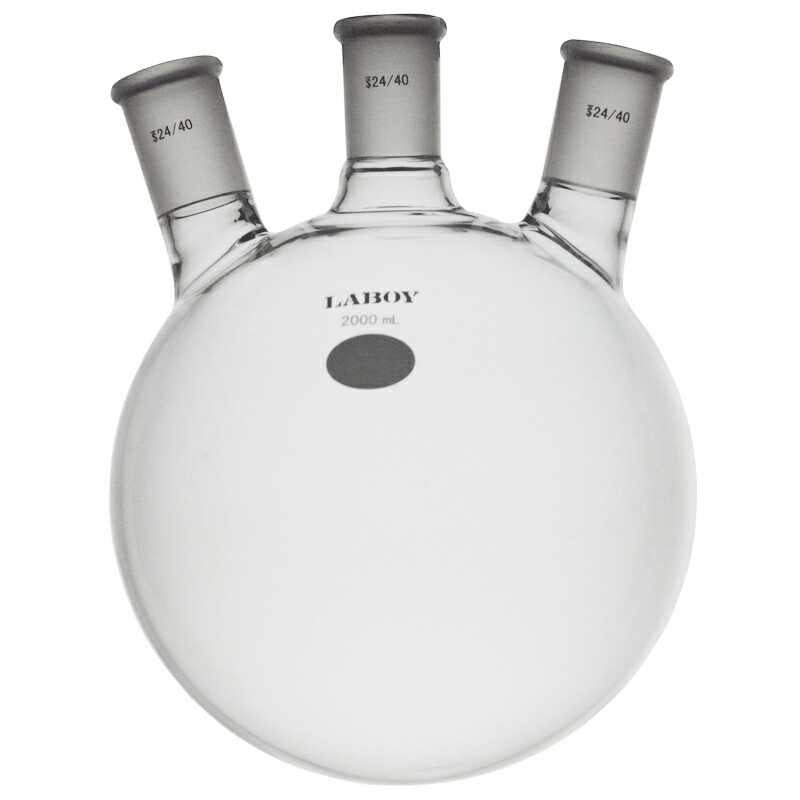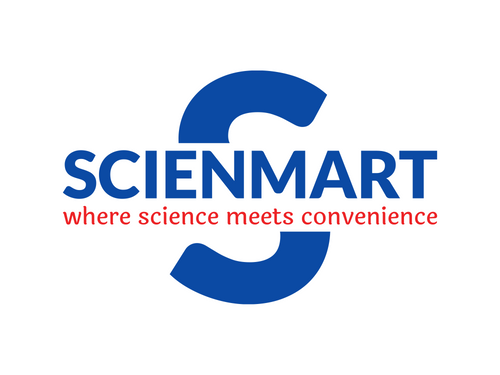1
/
of
1
Laboy Glass
Glass 3 neck Round Bottom Flask Angled with Standard Taper Joints
Glass 3 neck Round Bottom Flask Angled with Standard Taper Joints
Regular price
$19.87
Regular price
$28.39
Sale price
$19.87
Unit price
/
per
Couldn't load pickup availability
The Glass 3 Neck Round Bottom Flask Angled with Standard Taper Joints is a high-quality laboratory flask designed for use in various laboratory processes. Its unique design features three standard taper ground joints on the center neck and the side angled necks, allowing for versatile and flexible use.
The round bottom design of the flask promotes uniform heating and evaporation, making it ideal for use in distillation processes. The angled side necks also enable easy insertion of thermometers or bleed tubes with outer diameters between 5mm and 7.5mm. This feature is particularly useful for vacuum or reduced-pressure distillation, where precise temperature control is essential.
The flask is made of high-quality borosilicate glass, which ensures its durability and resistance to thermal shock, making it ideal for use in laboratory applications involving heating and cooling processes. The heavy wall design of the flask ensures uniform wall thickness and resistance to damage, which makes it a reliable and long-lasting addition to any laboratory.
The standard taper joints of the flask ensure compatibility with other laboratory apparatus and accessories, making it easy to integrate into existing laboratory setups. The ground joints also make the flask easy to clean and sterilize, allowing for efficient and reliable laboratory processes.
The Glass 3 Neck Round Bottom Flask Angled with Standard Taper Joints is a versatile and reliable laboratory flask that is essential for laboratory processes involving distillation and other thermal applications.
Laboy glass flasks are heavy wall designed,made by hand-blowing to ensure uniform wall thickness, made of high-quality borosilicate glasses and annealed at 800 degree Celsius ,can be heated directly in an open flame and can withstand typical laboratory thermal variations in chemistry processes like heating and cooling.
The round bottom design of the flask promotes uniform heating and evaporation, making it ideal for use in distillation processes. The angled side necks also enable easy insertion of thermometers or bleed tubes with outer diameters between 5mm and 7.5mm. This feature is particularly useful for vacuum or reduced-pressure distillation, where precise temperature control is essential.
The flask is made of high-quality borosilicate glass, which ensures its durability and resistance to thermal shock, making it ideal for use in laboratory applications involving heating and cooling processes. The heavy wall design of the flask ensures uniform wall thickness and resistance to damage, which makes it a reliable and long-lasting addition to any laboratory.
The standard taper joints of the flask ensure compatibility with other laboratory apparatus and accessories, making it easy to integrate into existing laboratory setups. The ground joints also make the flask easy to clean and sterilize, allowing for efficient and reliable laboratory processes.
The Glass 3 Neck Round Bottom Flask Angled with Standard Taper Joints is a versatile and reliable laboratory flask that is essential for laboratory processes involving distillation and other thermal applications.
Laboy glass flasks are heavy wall designed,made by hand-blowing to ensure uniform wall thickness, made of high-quality borosilicate glasses and annealed at 800 degree Celsius ,can be heated directly in an open flame and can withstand typical laboratory thermal variations in chemistry processes like heating and cooling.
Share
